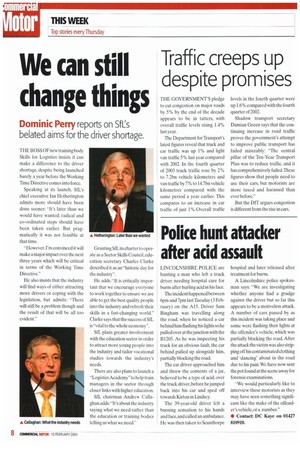Dominic Perry reports on Sfrs belated aims for the driver shortage.
Page 8

If you've noticed an error in this article please click here to report it so we can fix it.
THE BOSS OF new training body Skills for Logistics insists it can make a difference to the driver shortage. despite being launched barely a year before the Working Time Directive comes into force.
Speaking at its launch. SfL's chief executive Ian Hetherington admits more should have been done sooner: "It's later than we would have wanted; radical and co-ordinated steps should have been taken earlier. But pragmatically it was not feasible at that time.
"However, I'm convinced it will make a major impact over the next three years which will be critical in terms of the Working Time Directive."
He also insists that the industry will find ways of either attracting more drivers or coping with the legislation, but admits: "There will still be a problem though and the result of that will be all too evident." Granting SIL its charter to operate as a Sector Skills Council, education secretary Charles Clarke described it as an "historic day for the industry".
He adds: "It is critically important that we encourage everyone to work together to ensure we are able to get the best quality people into the industry and refresh their skills in a fast-changing world." Clarke says that the success of SfL is "vital to the whole economy".
SfL plans greater involvement with the education sector in order to attract more young people into the industry and tailor vocational studies towards the industry's needs.
There are also plans to launch a "Logistics Academy" to help train managers in the sector through closer links with higher education.
SfL chairman Andrew Callaghan adds:"It's about the industry saying what we need rather than the education or training bodies telling us what we need."






























































































































































































